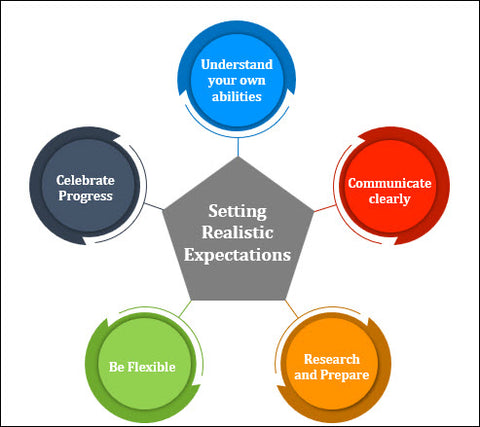Overcoming the Challenges of Delivering Projects on Time and Without Cost Over Runs
Delivering projects on time and within budget can be a major challenge faced by project managers. In today's fast-paced business world, completing projects on time and within budget is crucial to the success of any organization. However, many factors can contribute to project delays and cost overruns, such as poor planning, insufficient resources, unclear project goals, and unexpected obstacles. To ensure project success, project managers must be able to identify potential challenges and develop effective strategies to overcome them. In this essay, we will explore some of the common challenges faced by project managers and discuss strategies to overcome them.

Defining the Scope of the Project :
Defining the scope of a project involves determining the boundaries and objectives of the project, identifying the deliverables, and outlining what activities and tasks are included in the project. This helps to ensure that the project is realistic and achievable within the available resources, and that everyone involved understands what is expected of them. It also sets the foundation for project planning, initiation, execution, monitoring, and control. The scope of the project should be clearly documented and communicated to all stakeholders to avoid misunderstandings and conflicts.
Once the scope has been defined, it is important to establish a change control process to manage any changes or variations to the scope that may occur during the project. This process should identify when changes will be evaluated, who will approve of them, and how they will be communicated and documented.
Overall, defining the scope is an important part of project management as it helps to establish a clear understanding of what needs to be done and how to measure success. It sets the framework for effective project planning and ensures that all stakeholders are aligned on the goals and objectives of the project.
Setting Realistic Expectations
Setting realistic expectations is crucial for achieving success and avoiding disappointment. It involves understanding the limitations and boundaries of a situation and being able to anticipate the potential outcomes realistically.
- Understand your Own Abilities: Be aware of your own strengths and weaknesses and be realistic about what you can accomplish.
- Communicate Clearly: Make sure that you are communicating your expectations clearly to others, and that their expectations are clear to you.
- Research and Prepare: Take the time to research and prepare before starting a task or project to ensure that you have a realistic understanding of what is needed.
- Be Flexible: Be willing to adapt and adjust your expectations as needed based on new information and changing circumstances.
- Celebrate Progress: Recognize and celebrate small successes along the way to help you stay motivated and focused on the end goal.
Managing Risks
- Identify the Risks: The first step in managing risks is to identify them. This can be done through a risk assessment process, where the potential risks and their causes are analyzed.
- Assess the Risks: Once identified, each risk should be assessed for its likelihood and potential impact. This will help prioritize which risks need to be addressed first.
- Develop a Risk Management Plan: A plan should be developed for how to manage each risk. This may involve mitigation strategies, contingency plans, or transfer of risk through insurance or outsourcing.
- Implement the Plan: The plan should be communicated to all stakeholders and implemented according to the guidelines set out in the plan.
- Monitor and Review: Risks should be continuously monitored and the risk management plan updated as necessary.
- Learn from Experience: The lessons learned from managing risks should be incorporated into future risk management plans, in order to continuously improve processes and avoid similar risks in the future.
Monitoring Progress
Define Clear and Measurable Goals: Before starting any project or initiative, it is essential to define clear and specific goals that can be measured. This will help you to track progress and ensure that you are moving in the right direction.
Establish Metrics: Once you have defined your goals, establish metrics that will help you track progress. These metrics should be specific, measurable, and achievable.
Use Data-Driven Tools: Use data-driven tools and software to help you track progress and identify areas where improvement is needed. These tools can help you analyze large amounts of data quickly and efficiently.
Regularly Review Progress: Set up regular reviews to monitor progress and adjust the course of action if necessary. This will help you stay on track and ensure that you are meeting your goals.
Celebrate Milestones: Celebrate milestones and achievements along the way. This will help keep you and your team motivated and engaged in the long-term success of the project or initiative.
Taking Corrective Action
- Identify the Problem: Clearly define the issue that needs to be addressed. This may require gathering information and data related to the problem.
- Determine the Root Cause: Understanding why the problem occurred is critical to developing a solution. Conduct an investigation to find the root cause of the issue.
- Develop a Plan: Create a plan that outlines the specific actions that need to be taken to address the problem.
- Implement the Plan: Put the plan into action and communicate clearly with all stakeholders affected by the implementation.
- Monitor the Situation: Regularly check the effectiveness of the corrective action taken. Make adjustments as necessary.
- Prevent Reoccurrence: Once the problem is solved, develop and implement steps to prevent the issue from happening in the future.
Conclusion
In conclusion, delivering projects on time and without cost overruns is a critical aspect of project management. While there are several challenges, such as scope creep and unexpected delays, an effective plan, communication, and risk management can help overcome these challenges. It is important to have a clear understanding of the project requirements, expectations, and timelines, and to monitor the progress regularly. Adopting a proactive approach and leveraging project management tools and techniques can help ensure successful project delivery. Ultimately, with the right mindset, commitment, and resources, it is possible to overcome the challenges of delivering projects on time and without cost overruns.




